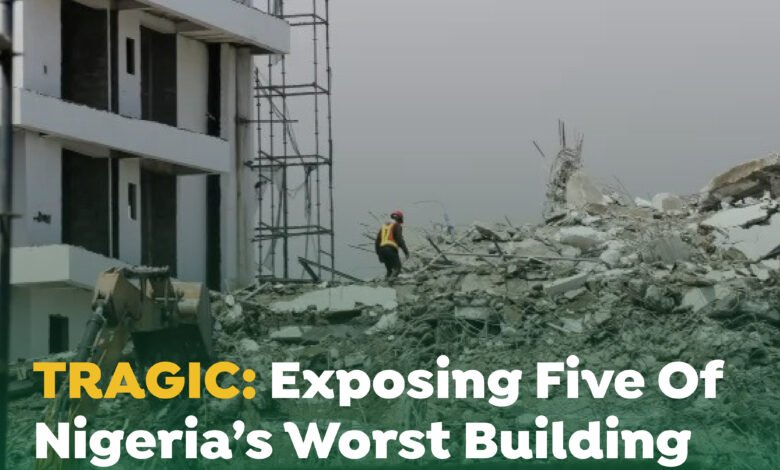
The collapse of a two-storey building at Saint Academy in Plateau State on Friday, claiming the lives of 22 people, including students, is a grim reminder of Nigeria’s persistent battle with building failures.
While the immediate focus is on the tragedy and rescue efforts, the underlying causes of these recurrent disasters demand urgent attention.
“Application of building code is there, which Nigeria has not been using, and this is supposed to serve as a guide to builders on building construction.” Oluwaseyi Oduye, a fire and safety expert noted.
“If you are supposed to use 10 bags of cement and you are using four or five, automatically there will be a shortfall, and that will lead to building collapse,” he added .
Decade of Death
Building collapses have become a distressing norm in Nigeria. A staggering 271 buildings have crumbled in the past decade alone, resulting in over 500 deaths, according to the PUNCH Newspaper. This translates to an average of 27 building collapses annually.
PREMIUM TIMES further paints a grim statistic that underscores the gravity of the situation as they reported in May that the country recorded 41 building collapses in 17 months.
These numbers aren’t mere statistics; they represent real people and families who have been hurt, communities that have been damaged, and a country’s infrastructure that is in danger.
To understand the gravity of the situation, this article will throw light on five of the deadliest building collapses that have rocked the country in the last 20 years as well as the unfortunate casualties that came with them.
1. Synagogue Building Collapse in 2014
At least 116 persons lost their lives following the collapse of a six-storey building belonging to one of the biggest churches in Lagos, Synagogue Church of All Nations, on September 12, 2014. The people initially trapped under the rubble were about 300. But after the back-and-forth of the rescue teams, some victims were rescued and ferried to far and nearby hospitals.
2. Lekki Building Collapse in 2016
Two years after the tragic Synagogue building collapse on March 8, 2016, a five-storey building under construction at Lekki Gardens Horizon 1, in the Lekki Phase 1 area of Lagos, caved in, resulting in the death of 34 people while many were injured. Most of the people who died in the tragic incident were construction workers.
3. The Titanic Building Collapse in 2006
The Titanic building in the Ebute Metta area of Lagos collapsed three years after it was erected. The four-storey building, which went down on July 18, 2006, claimed no fewer than 28 lives. Reports had it that over 50 people were rescued, and several of them sustained injuries.
4. Jos School Building Collapse 2014
No residents of Jos South Local Government Area would like to remember September 2014 and the horrible event that accompanied it. It was the month and year Abu Naima Primary and Secondary School in Bukuru in the area caved in and sent no fewer than 10 pupils to their early graves.
5. Umuahia Building Collapse in 2013
The Agbama area of Umuahia, Abia State, was thrown into mourning in May 2013 after a building under construction collapsed, resulting in the death of no fewer than seven people. The tragic incident happened at night and took the frantic efforts of the various rescue teams present to curtail the death toll.
Experts insights
Experts contend that builders are not only the culprits in the cases of buildings that collapse owing to substandard materials; they allege that some government agents are in connivance. They argue that if the regulatory bodies insist that builders must adopt the available building code, there will be far less incidences of building collapses.
They urge the Federal and State governments to ensure that the construction regulatory agencies under them are delivering on their mandate. They allege that there are a number of buildings that have been marked for demolition for some years but are still being used because those who are supposed to effect the demolition have been compromised.
Indeed, the government, construction industry, and civil society must work collaboratively to create a safer built environment.
Experts assure that by prioritizing building safety and holding those responsible accountable, Nigeria can prevent future tragedies and protect the lives of its citizens





